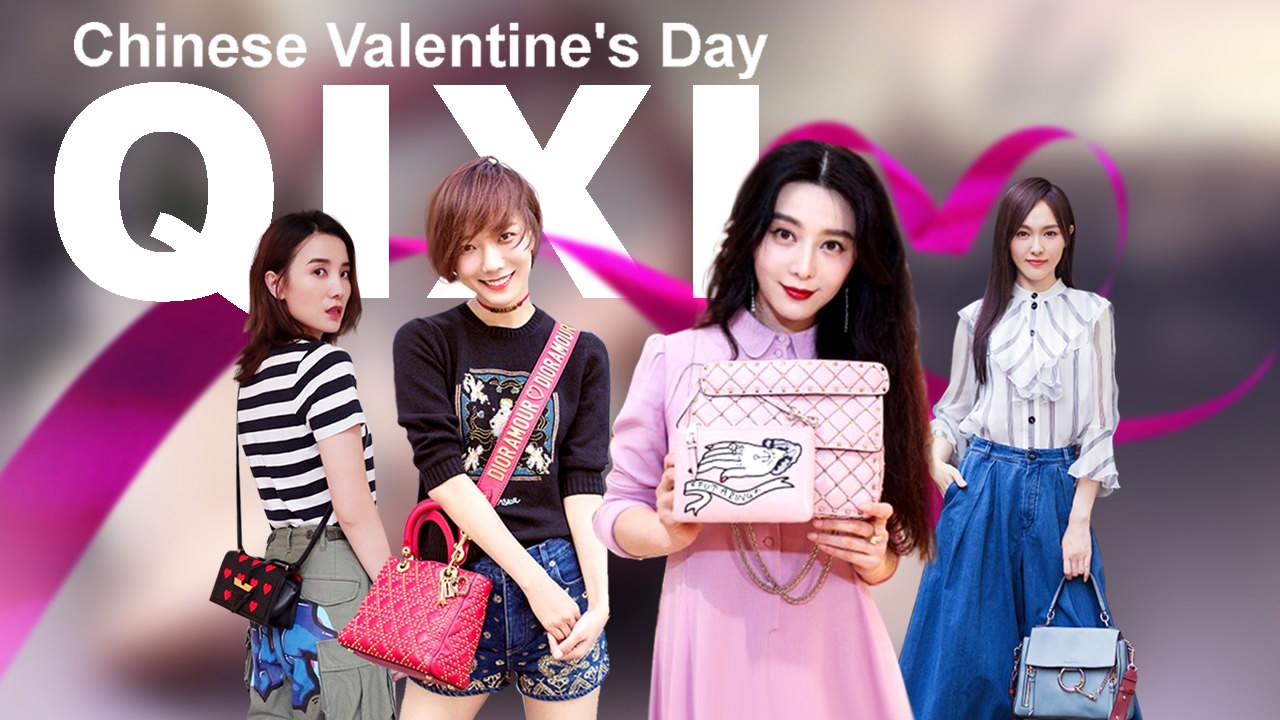Qixi, or the Chinese Valentine's Day which falls on August 28 this year, is just one day away.
Love it or loathe it, it's always prime gift-buying time.
High-end luxury brands are turning simultaneously to online platforms offering their limited-time sales of special-edition items for this widely celebrated Chinese holiday.
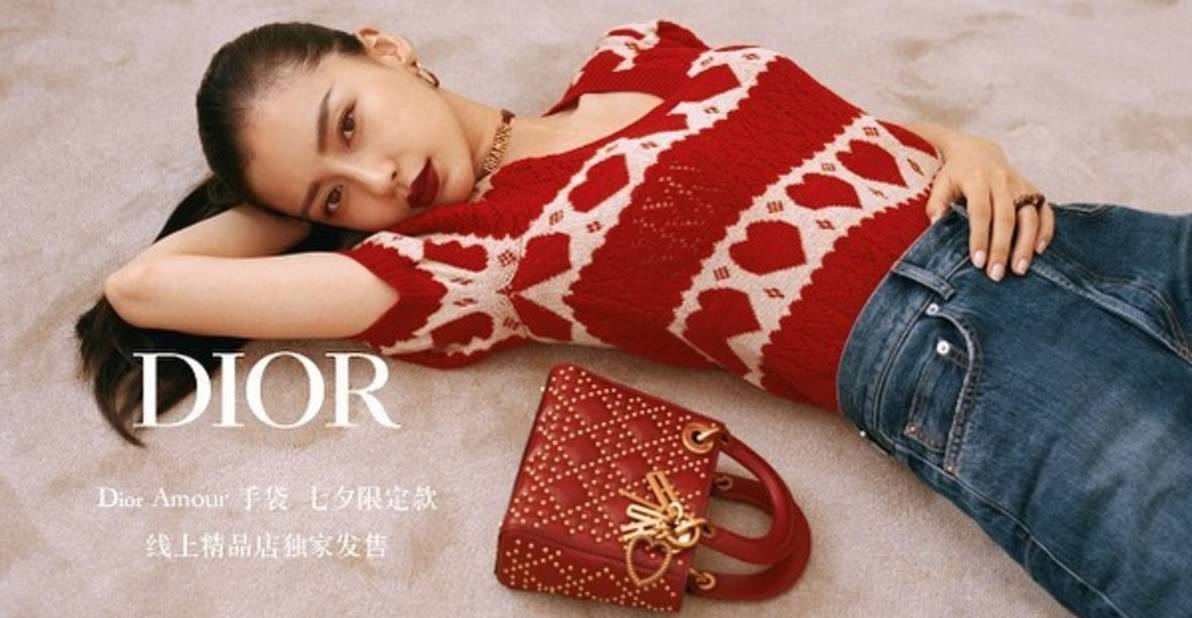
Dior poster for Qixi limited-edition handbag /Dior official Weibo account
Dior poster for Qixi limited-edition handbag /Dior official Weibo account
On August 15, Dior offered a new handbag, from the Dioramour series, exclusively on WeChat the popular instant messaging network. With the French fashion brand ambassador Angelababy being featured in this online campaign, it appeared that all the bags have been sold already.
Dior was the first luxury brand to launch a campaign on WeChat platform during last year's Qixi Festival. And one year later, more than ever are joining the club for this day of love, and of course gift shopping.
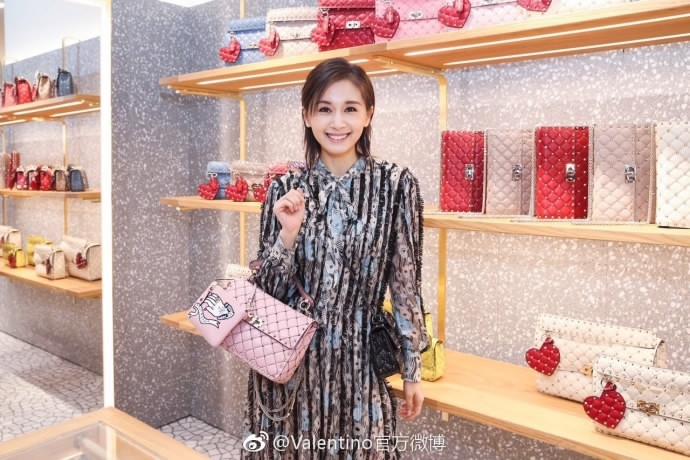
Valentino poster for Qixi handbag /Valentino official Weibo account
Valentino poster for Qixi handbag /Valentino official Weibo account
As early as on August 9, Valentino became the first luxury brand to offer its special edition this year, with their Rockstud Spike bag. Many Chinese celebrities, including luxury darling Fan Bingbing, have been invited to the fashion house to promote the handbag.
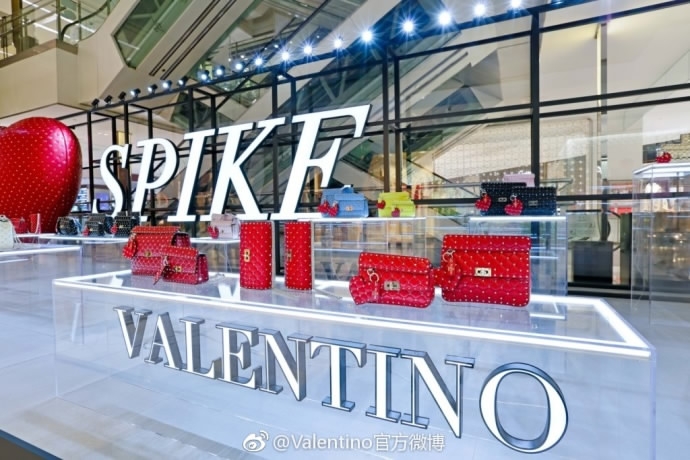
"I love Spike" exhibition held in Valentino boutique in Beijing SKP / Valentino official Weibo account
"I love Spike" exhibition held in Valentino boutique in Beijing SKP / Valentino official Weibo account
Also, an exhibition called "I love Spike" has been presented in its boutique in Beijing, in an effort to move the online buzz to the offline experience.
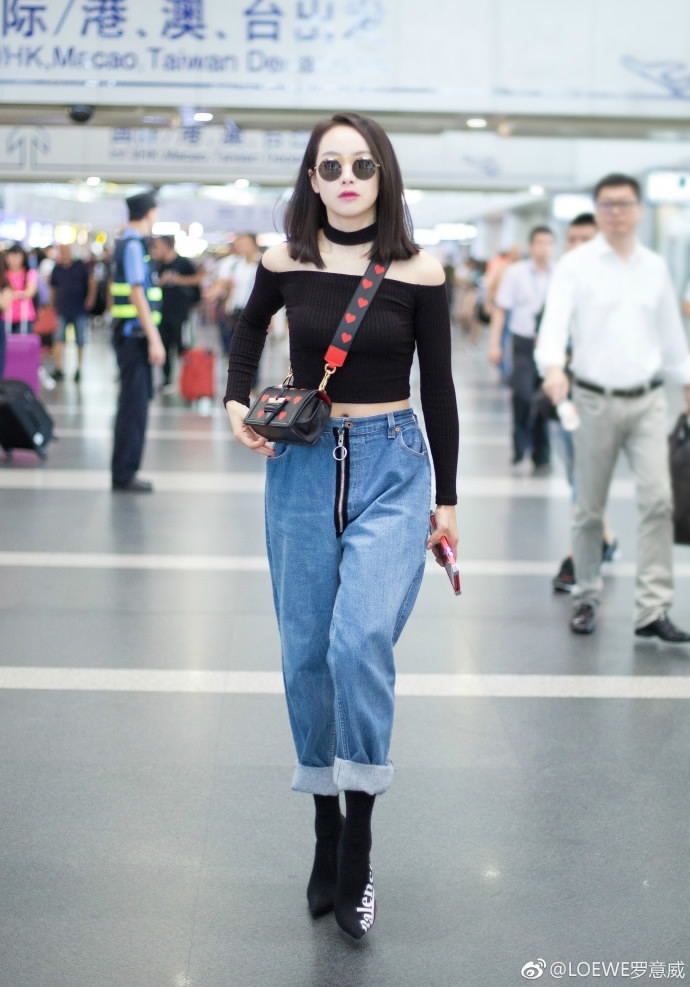
Loewe poster for Qixi limited-edition handbag /Loewe official Weibo account
Loewe poster for Qixi limited-edition handbag /Loewe official Weibo account
In honor of this year's special day, Spanish fashion brand Loewe has designed "Hearts" Barcelona bags exclusively for China's online shoppers after announcing its partnership with Tmall, Alibaba Group's B2C shopping site. This marks the LVMH-owned luxury house's first venture into China's e-commerce market. The only 99 bags decorated with red hearts were reportedly sold out.

Chloe poster for Qixi limited-edition handbag /Chloe official Weibo account
Chloe poster for Qixi limited-edition handbag /Chloe official Weibo account
Chloe has kicked off its WeChat sale this year with an offer of a blue Faye Day bag in collaboration with Mr. Bags. The campaign features its brand ambassador Tiffany Tang, among other well-known fashionable figures in China. According to fashion site LadyMax, on August 10 on which the handbag was offered, all the 85 were sold out.
China's e-tailing market: Too big to ignore
An increasing number of luxury brands are now jumping into the country's five trillion yuan (751 billion US dollars) e-retail market, hoping to woo the hundreds of millions of Chinese shoppers to buy their big-ticket luxury handbags and haute couture.
Fearing of brand dilution, luxury brands have long been wary of adopting any kind of e-commerce sales, said Mario Ortelli, a senior luxury goods analyst with Bernstein Co. However, as the emerging markets' development slows and the revenue growth slows down, it's imperative for these companies to undergo reform and strengthen marketing, he added.

Chinese customers queuing up for Gucci /Reuters photo
Chinese customers queuing up for Gucci /Reuters photo
No matter it's integrating into WeChat, pushing marketing campaigns on Weibo, or opening their own storefronts on Tmall.com or JD.com, statistics have shown that over 70 percent of major luxury brands have digitalized their commerce in China, as per Chinese commercial and real estate research center RET's report.
Although revenues from online sales are currently small, just five percent of China's 22.5 billion domestic luxury market, they are growing fast, up 20 percent year-on-year, according to report by business intelligence firm L2.
Mobile plays an increasingly vital role. Searches for luxury brands conducted on cell phones are nearly double those done on a desktop, said the report.
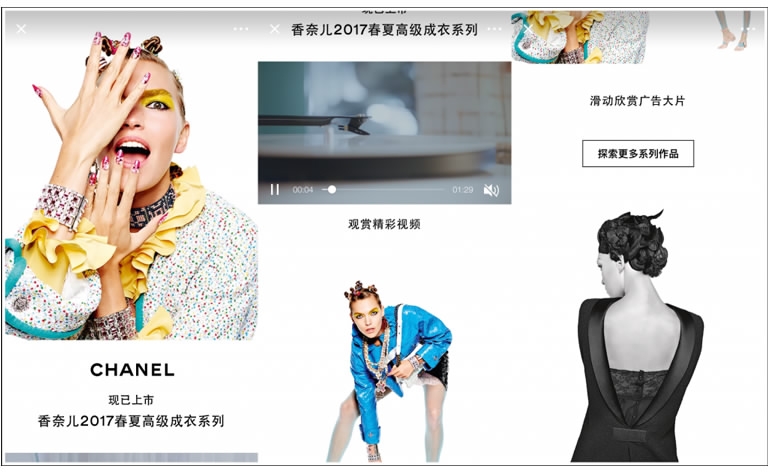
WeChat Moments campaign launched by CHANEL for its Spring/Summer 2017 haute couture /luxury society
WeChat Moments campaign launched by CHANEL for its Spring/Summer 2017 haute couture /luxury society
Online campaigns for brand promotion
Other than how many and how much the handbags were sold at, luxury brands are looking for more, especially how their digital campaign has created a buzz on the Internet and promoted the brand as a whole as a result.
When Dior launched their first WeChat campaign designed for last year's Qixi Festival on August 1 midnight, the news that fashion house Dior has become the first in China to sell luxury goods on the uncharted realm of WeChat has become viral overnight and sparked wide discussions.

All the $2,170 Givenchy handbags sold out in 12 minutes during an online campaign /screenshot of the promotional store order page
All the $2,170 Givenchy handbags sold out in 12 minutes during an online campaign /screenshot of the promotional store order page
Another example is that all the 80 limited-edition handbags designed by Givenchy and Mr. Bags for Valentine's Day were sold out in 12 minutes, creating another wave of discussion.
As a consequence, this move has prompted a series of following steps by other brands, bringing a remarkable change to the entire industry. As a report by China's e-commerce research center CECARC has revealed, although three-fourth of luxury goods purchase took place in stores, as a matter fact, customers were firstly influenced by online information.
In other words, the digital channel is guiding luxury buyers to boutiques.

